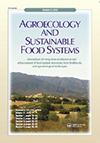Agroecology and Interculturality
引用次数: 2
Abstract
On August, 20, 2011, I attended a monumental event in José Maria Morelos, Quintana Roo, Mexico, a small town in the center of the Yucatan Peninsula. I had the privilege of attending the graduation ceremony of the first generation of the Mayan Intercultural University of Quintana Roo (UIMQRoo). As part of a national program of Intercultural Universities located in many of the centers of the different ethnic cultures of Mexico, UIMQRoo is the campus focused on the Maya. Students from the many small towns around the Peninsula are given the opportunity to study at a university where courses are given bilingually in Mayan and Spanish, with multiple opportunities for English study as well. Everything they learn is presented in an intercultural context, with a focus on seeing how multiple cultures bring strengths and possibilities to developing systems of knowledge and making contributions to society, from local to global. Rather than think that a culture has to isolate itself to prosper, UIMQRoo emphasizes the importance of simultaneously strengthening one’s own cultural foundations, from language to history to customs, while integrating knowledge and experience from other cultures. Students return to their communities every summer during their four years of study to plan and implement livelihood development strategies that create opportunities for the students as much as for their communities. The four major areas of study are degree programs in community health, language and culture, alternative tourism, and agroecological production systems. It is this last one that is of special pertinence to JSA. Agroecology is grounded in knowledge systems that integrate science and research, practice and experience, and the need for the social change that brings justice and equity to our food systems. The Maya culture is well known for being one that is rich in agroecological knowledge, practice, and tradition, with a long history of developing sustainable food system strategies. These strategies range from the traditional “three sisters” of intercropped corn, beans, and squash, to diverse forested home garden systems, to the pre-Hispanic raised field systems in flood-prone areas that probably gave rise to the Chinampas of Central Mexico. When we realize that such traditional knowledge, much of which continues to function today, is the result of the long coevolution of a people and the landscape where their agriculture is practiced, we begin to see another way that agroecology is part of the knowledge system of a culture. When we look back and also农业生态学与跨文化
2011年8月20日,我在尤卡坦半岛中部的小镇金塔纳罗奥(Quintana Roo)参加了一场纪念活动。我有幸参加了金塔纳罗奥玛雅文化大学(UIMQRoo)第一代的毕业典礼。作为跨文化大学国家计划的一部分,位于墨西哥不同民族文化的许多中心,UIMQRoo是专注于玛雅的校园。来自半岛周围许多小镇的学生都有机会在一所大学学习,该大学以玛雅语和西班牙语双语授课,同时也有多种英语学习机会。他们学到的一切都是在跨文化背景下呈现的,重点是看到多元文化如何为发展知识体系带来优势和可能性,并为社会做出贡献,从地方到全球。UIMQRoo并没有认为一种文化必须孤立自己才能繁荣,而是强调了同时加强自己的文化基础的重要性,从语言到历史到习俗,同时整合其他文化的知识和经验。在四年的学习期间,学生们每年夏天都会回到他们的社区,规划和实施生计发展战略,为学生和社区创造机会。四个主要研究领域是社区卫生、语言和文化、替代旅游和农业生态生产系统的学位课程。最后这一点与JSA特别相关。生态农业的基础是整合了科学与研究、实践与经验的知识体系,以及为我们的粮食系统带来正义与公平的社会变革需求。玛雅文化以其丰富的农业生态知识、实践和传统而闻名,在发展可持续粮食系统战略方面有着悠久的历史。这些策略的范围从传统的玉米、豆类和南瓜的“三姐妹”间作,到多样化的森林家庭花园系统,再到前西班牙人在洪水易发地区的耕地系统,这可能是墨西哥中部奇南帕的起源。当我们意识到这些传统知识,其中大部分至今仍在发挥作用,是一个民族和他们从事农业的土地长期共同进化的结果时,我们开始从另一个角度看到农业生态学是文化知识系统的一部分。当我们回首也
本文章由计算机程序翻译,如有差异,请以英文原文为准。
求助全文
约1分钟内获得全文
求助全文

 求助内容:
求助内容: 应助结果提醒方式:
应助结果提醒方式:


